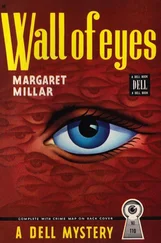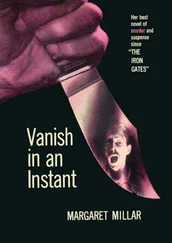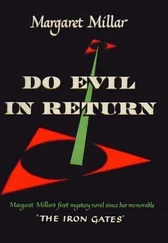“Why is winning it so important to you, Oliver?”
“You know why. It will help me get reelected.”
“Yes, but why is it so important to you to be reelected? God knows it can’t be the salary. You could do much better in private practice.”
“I want to be somebody my sons will look up to and want to emulate. I can’t be just an ordinary lawyer. You know what most people think of lawyers. But district attorney, that’s a position of authority, a position that demands respect. It gives the boys something to aim at, shoot for.”
“You’re forgetting that this is an iconoclastic generation, Oliver.”
“What’s ‘iconoclastic’?”
“What I really mean to say is that teenagers nowadays are likely to consider the position of district attorney something to shoot down, not at.”
“That doesn’t apply to my sons. They respect authority.”
Vee thought of the epoxy glue episode and the Latin graffiti in the bathroom, but she said smoothly, “I’m sure your sons would have just as much respect for you if you were an ordinary lawyer.”
“Do you really think that?”
“I’m sure of it.” There was the faint metallic taste of irony in Vee’s mouth, but she swallowed it quickly. After all, the epoxy and graffiti stages would soon pass and Thatcher would be able to memorize all twenty-six amendments and everyone would live happily ever after. And I’ll be the Queen of Rumania.
“Oliver, before you hang up, I want to tell you that the boys and I will always love you no matter how things turn out.”
There was a silence. Then: “I’m sorry. My mind was wandering. What did you say?”
“Nothing. Go look for your mind.”
“I have to hang up now. Thanks for calling.”
“I didn’t call you. You called me.”
But the line was dead. Slowly and sadly she replaced the phone on the desk. She couldn’t help loving Oliver, but she reserved the right to think he was often a damn fool.
It was a long afternoon. Court didn’t adjourn until nearly six o’clock. The interval between recess and adjournment was taken up by the process of showing to the jurors each of the marked photographs in the ten books Donnelly had offered in evidence. All of the photographs were of female strangulation victims taken in autopsy rooms throughout the country: a prostitute in Omaha, Nebraska; two young sisters from Brownsville, Texas; a housewife from Visalia, California, and another from Bend, Oregon; a Chicago nurse; an Atlanta waitress; a Los Angeles meter maid; a Miami drug dealer; a dental hygienist from Albuquerque; an English tourist visiting Philadelphia; and a New Orleans real estate agent. Photographs of each of these victims were projected on a large screen brought in by the bailiff. The enlarged picture of the grooves on Mrs. Pherson’s throat remained on the display board beside the screen. Each photograph flashed on the screen for comparison, showed one noticeable difference from Mrs. Pherson’s photograph. The grooves left by the fleshy tips of thumbs were defined by indentations of thumbnails in every victim except Mrs. Pherson.
As each picture was shown, Donnelly used a rubber-tipped pointer to draw this difference to the jurors’ attention. Then once again the pieces of modeling clay were passed around among the jurors, and Donnelly’s message came across loud and clear: According to the physical evidence available, Lieutenant Sommerville or Cully King might have strangled all the other victims, but neither of them could have strangled Mrs. Pherson because no thumbnail indentations were left on her throat.
Owen’s objections were feeble and overruled. By this time he was really worried, knowing better than anyone in the courtroom except the judge that Donnelly didn’t have to prove Mrs. Pherson was strangled by kelp, he had only to show reasonable doubt that she was strangled by Cully King. That such doubt had been cast was evident not only on the face of each juror but on that of Lieutenant Sommerville.
When court was finally adjourned for the day, Sommerville waited in the corridor to speak with Owen.
“I thought you said it was a sure thing he was guilty, Mr. Owen.”
“It’s a sure thing.”
“That’s not the way it looks right now. I’d hate to have a part in convicting an innocent man.”
“You have nothing to worry about,” Owen said sourly. “As far as evidence is concerned, you might as well have been a defense witness, not mine.”
“I did the best I could.”
“Thanks. Meanwhile, don’t forget that Donnelly picked those books and those pictures. There must be hundreds of others. And I’m going to find them.”
“I hope you don’t call me back to the stand.” Sommerville took off his cap and wiped his forehead with his hand. “I hate looking at pictures like that.”
“Nobody enjoys it,” Owen said. “But we owe it to Madeline Pherson, a human being.”
In the courtroom only four people remained, Cully King and Donnelly and the bailiff standing at the door talking to the deputy who’d come to take Cully back to the jail.
“You did great,” Cully told Donnelly. “That was real convincing. Now I know why you told me to stop biting my nails.”
“I told you what?”
“To stop biting my nails. You remember that night when you came to the jail—”
“I don’t recall the episode.”
“Sure you do. You came in late. I distinctly remember.”
“Whatever you distinctly remember, you will now distinctly forget.”
“Sure. Okay. Consider it forgotten.”
“Communication between lawyer and client is privileged — that is, strictly private. But it sometimes leaks out, occasionally through the lawyer but more often through the client after a few drinks or a little softening up of one kind or another. There is nothing wrong in what I said to you or what you did in response, but it might possibly be misinterpreted as an attempt to obstruct justice. A chatty guy like you might open up to a nice, friendly cellmate who likes to listen. But that cellmate could be a police informant. So what did I tell you to do on the night I came to the jail?”
“Nothing.”
“Good. That settles that.”
“Not quite,” Cully said. “Where’d you get the idea that I was a chatty guy?”
“You and Miss Foster seem to find a lot to talk about.”
“I got nothing to say to her.”
“Your lips moved. I assume when a person’s lips move, he is talking. Is that a fair assumption?”
“I hate sarcastic know-it-all bastards like you.”
Cully pushed back his chair, got up and walked quickly to the door. Donnelly heard him exchanging greetings with the deputy about being late and missing the jail bus.
“So you ride in style, Cully boy,” the deputy said. “Courtesy of the sheriff, you got a limo all to yourself.”
“Do I get to drive?”
“Sure, if you have a key.”
Cully laughed, and the two of them walked out together.
Donnelly sat alone at the counsel’s table for a long time, his head in his hands.
The bailiff’s voice sounded hollow in the empty room. “Mr. Donnelly, don’t you want to go home?”
“I’m... not in any hurry.”
“Well, I have to lock up now. The main doors are already bolted. When you leave, you’ll have to use the sheriff’s entrance.”
“All right. Thanks.”
To avoid the evening rush on the freeway, Donnelly drove home through the city streets. He loved these streets and knew them well. As a new arrival he used to walk around downtown during lunch hours like a tourist, and after twenty-five years he still felt like a tourist, privileged to visit a city whose main street went all the way down to the sea. In each of the other directions there were mountains, changing color every hour, every season, from green and gray to pink and violet and sometimes, in the winter, white. On overcast days the mountains disappeared entirely, and the city became a stage setting without a backdrop, and the most imposing part of the setting was the courthouse. Its pure white tower was a symbol of truth and justice, and its massive clock chimed the hours and their message: Son, observe the time and fly from evil.
Читать дальше
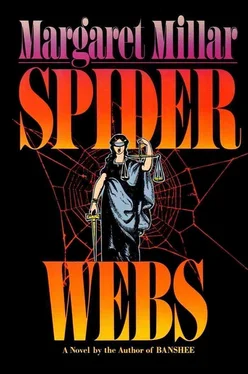

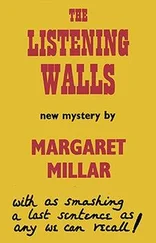
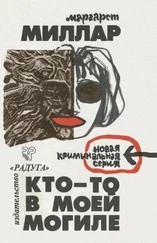
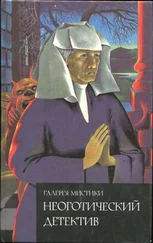
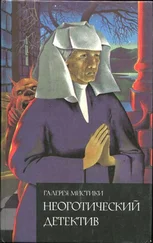

![Маргарет Миллар - Rose's Last Summer [= The Lively Corpse]](/books/384369/margaret-millar-rose-s-last-summer-the-lively-c-thumb.webp)
